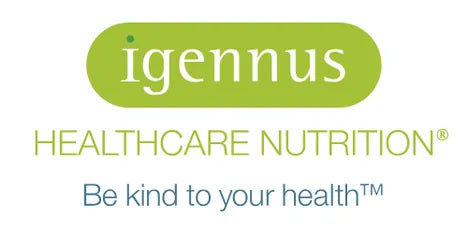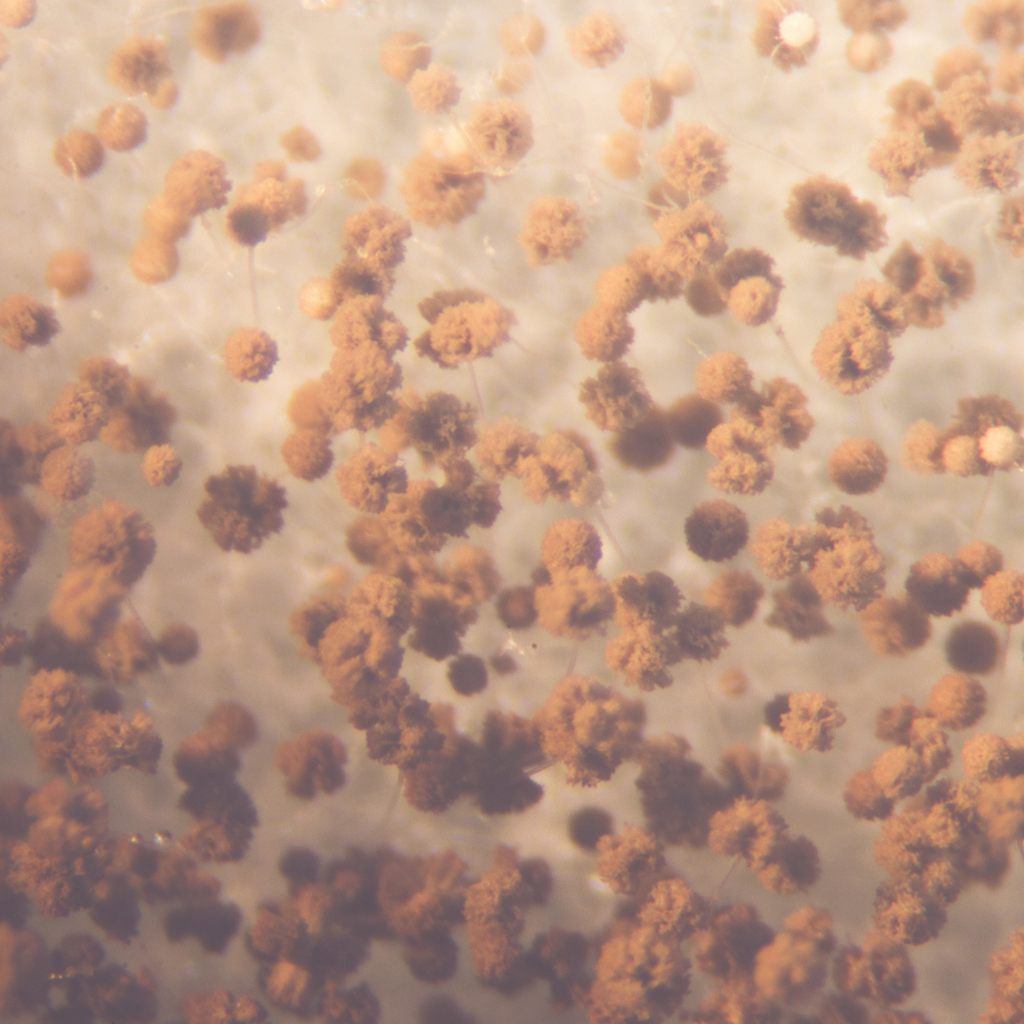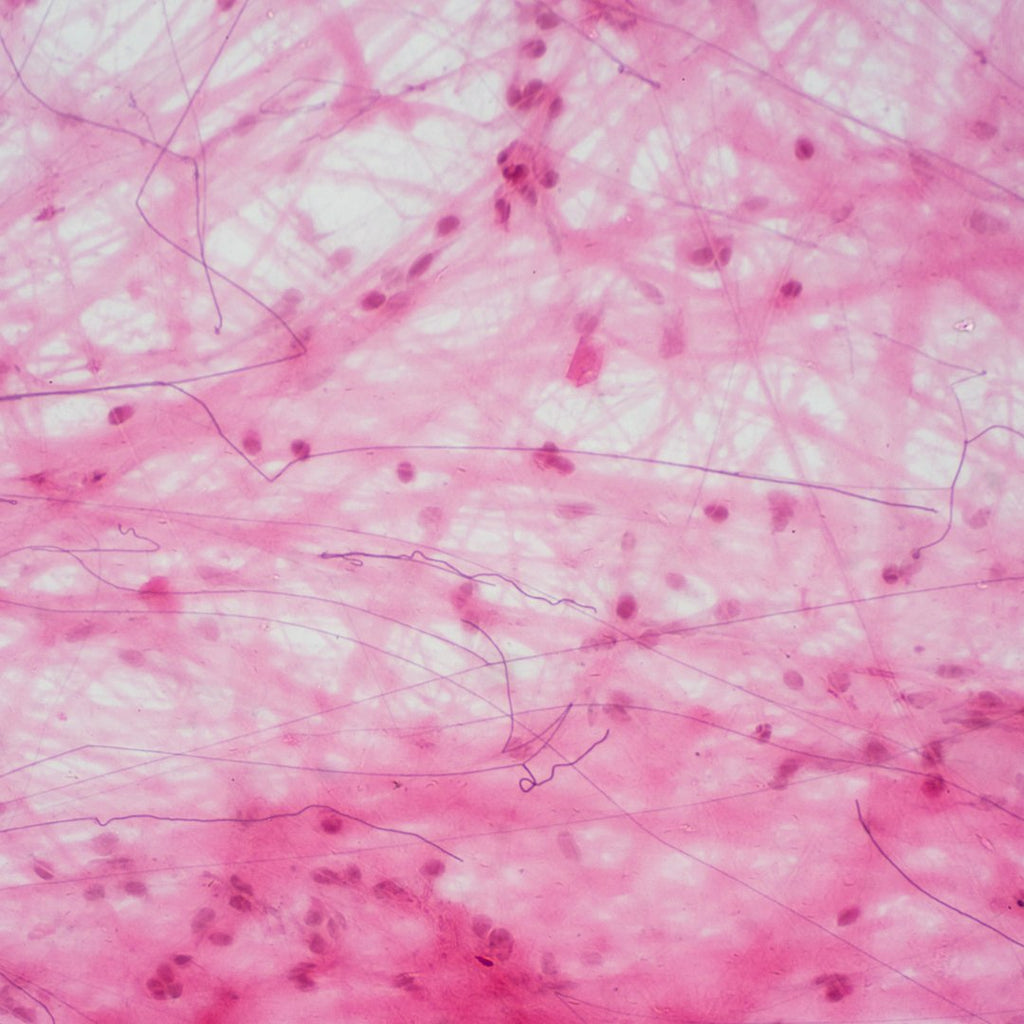Polycystic ovary syndrome (PCOS) is the most commonly occurring cause of female infertility and is believed to affect up to one in five women of reproductive age and as many as 5-10% of women worldwide. The condition is associated with an imbalance of sex hormones, often leading to the development of ovarian cysts with irregular or absent menstrual cycles. The complications associated with PCOS are mainly attributed to the suppression of follicle stimulating hormone (FSH) secretion and a corresponding high luteinising hormone (LH) to FSH ratio caused by excess androgen production in the ovaries.
As a result, the development of the dominant follicle is disrupted and, in the absence of the normal LH ‘surge’, ovulation does not occur. In addition to potential fertility issues, the physical and often distressing symptoms associated with hyperandrogenism include acne, hirsutism (excess facial and body hair), and later, generally towards middle age, male pattern alopecia. While PCOS can be considered to have a major impact on fertility and reproductive health, it also has significant implications for a woman’s metabolic and psychological health. Not only are women with PCOS at an increased risk of developing type II diabetes, cardiovascular-related health issues and cancers of the endometrium, breast and ovaries, but they are also at a higher risk for developing depression and anxiety. The condition can go unrecognised in many women, with a formal diagnosis only made when fertility issues arise that force the women to seek professional advice. Encouragingly, evidence shows women may be able to restore ovulation, improve the reproductive hormonal profile, and achieve an improvement in insulin sensitivity, thus lowering the risk of metabolic disturbances, through the implementation of some relatively simple, but specific, dietary and lifestyle changes.
Insulin resistance and PCOS
Insulin resistance (while independent of obesity) is particularly common in PCOS and is substantially worsened by obesity. As many as 75% of PCOS cases are either overweight or obese, with insulin resistant, obese women with PCOS known to be at a higher risk of anovulation and fertility issues than an insulin resistant woman with PCOS who is of normal weight. [1] Elevated insulin, alongside elevated LH leads to increased androgen production. Insulin resistance leads to hyperinsulinaemia, reduces sex hormone binding globulin (SHBG) thereby raising free circulating testosterone and together, hyperandrogenism and hyperinsulinaemia impair normal follicle development. In addition, c-reactive protein (CRP), serum amyloid A (SAA) and homocysteine (all surrogate measures of cardiovascular risk) and adiponectin (involved in the modulation of glucose and lipid metabolism) are all abnormal in women with PCOS. Interestingly, many women with PCOS have genetic polymorphisms in MTHFR 677CT and the associated reduction in activity of methylenetetrahydrofolate reductase predisposes these women to higher homocysteine levels. Low adiponectin levels observed in women with PCOS have been largely attributed to obesity and are directly related to insulin resistance. Raising adiponectin levels leads to an increase in SHBG and a subsequent reduction in androgens.
In light of the above, nutrition and lifestyle strategies to help restore insulin sensitivity, manage 5α-reductase activity, elevate adiponectin levels, and subsequently increase SHBG, and address homocysteine recycling, in line with individual genetic polymorphisms, are important therapeutic considerations for managing PCOS.
Dietary management of PCOS
In PCOS, glucose acts as a dietary trigger that can induce both oxidative stress and inflammation that directly stimulates excess ovarian androgen production. While increased abdominal adiposity contributes to the inflammatory load in PCOS, excess androgens encourage insulin resistance, leading to elevated insulin levels, which in turn stimulate further androgen synthesis. This vicious cycle results in a worsening of PCOS symptoms, making sufferers especially susceptible to obesity and type II diabetes. The first-line treatment for PCOS (certainly in the case of overweight and obese patients) includes diet and lifestyle interventions that promote a healthy weight and reduce the risk of developing metabolic syndrome which may lead to type II diabetes. Evidence suggests that even a modest weight loss of around 5% total body weight can restore ovulation, improve the reproductive hormonal profile, and achieve an improvement in insulin sensitivity. While optimal dietary guidelines for weight loss in PCOS are not established, several lines of evidence appear to suggest that low-carbohydrate, Ketogenic diets can lead to significant weight loss, improvement in glycaemic control, lower testosterone and the LH/FSH ratio and reduce several markers of inflammation. [2,3,4,5] In comparison, adopting an anti-inflammatory, low glycaemic load diet consisting of 50% carbohydrates 25% proteins and 25% fat has also been shown to produce significant benefits to PCOS sufferers. This Mediterranean-inspired diet encourages the consumption of fatty fish, legumes, nuts, olive oil, herbs, spices, and green tea, while processed meat and poultry, as well as added sugars (which reduce SHBG levels) were limited. After a 12-week intervention with an anti-inflammatory hypocaloric diet (in combination with increased physical activity) women with PCOS lost 7% of their body weight, 6.6% loss in waist circumference, and 9.2% loss of body fat and a 21.7% reduction in visceral fat. In addition, total cholesterol decreased by 9%, triglycerides by 18%, LDL by 10.6%, CRP by 35%, SAA by 38%. Further, SHGB rose by 65%, with the study reporting a 63% regain of menstrual cyclicity and 12% spontaneous pregnancy rate within the 12 week period. [6]
Omega-3 fatty acids
Dietary intervention with omega-3 fatty acids (as both fish and fish oil) is well established as an intervention to improve insulin sensitivity and decrease pro-inflammatory biomarkers, CRP and IL-6 in overweight individuals. [7] Importantly, a 6-month dietary intake of 1.5g daily has been shown, in non-obese PCOS women, to significantly increase SHBG and lower both LH and testosterone. Similarly, obese PCOS women treated with daily oral 1,200 mg of omega-3 for 8 weeks showed significant improvements in adiponectin and insulin signalling, in addition to improvements in cholesterol triglycerides and CRP status. [8,9] Pharmepa MAINTAIN, which delivers 1g omega-3 per dose with the addition of omega-6 GLA, a known a-5 reductase inhibitor, is a useful product for managing some of the physical symptoms of PCOS, including acnes and hirsutism, by decreasing the reduction of testosterone to dihydrotestosterone.
Inositol
Inositol is a component of inositolphosphoglycans (IPGs) which act as second messengers in insulin signalling. In women with PCOS, a defect in tissue availability, or altered metabolism of inositol or IPGs mediators, is thought to contribute to insulin resistance. As such, the use of dietary and supplemental inositol offers promising therapeutic potential due to its involvement in several insulin-dependent processes, such as metabolic syndrome and PCOS. Studies have, for example, demonstrated that myo-inositol (2-4 g/day for 12-16 weeks), via mechanisms that include improved insulin sensitivity and androgen normalising, is capable of restoring spontaneous ovarian activity, and consequently fertility, in many patients with PCOS. [10]
CoQ10
With both elevated oxidative stress and low-grade inflammation, hallmarks of PCOS, anti-oxidant interventions also appear prudent. VESIsorb Ubiquinol 100 mg capsules deliver the most active & potent dose of ‘body ready’ CoQ10 with several different meta-analyses supporting the use of CoQ10 supplementation as an effective antioxidant, also capable of reducing key proinflammatory biomarkers including CRP, IL-6 and TNF-α. [11,12] In a randomised, double-blind, placebo-controlled trial, conducted on 60 women diagnosed with PCOS, 100 mg/day CoQ10, taken over a period of 12 weeks, was shown to significantly decrease fasting plasma glucose, decrease serum insulin concentrations and improve insulin sensitivity, suggesting that CoQ10 offers significant benefits over and above anti-oxidant support. [13]
Table 1: Key nutrients shown to influence metabolic dysregulation observed in PCOS
Summary
Recognising PCOS early appears to be key to reducing the potential long-term health consequences associated with the condition. Dietary interventions that focus on weight loss and improved insulin signalling are associated with improvements in circulating androgen levels capable of restoring normal ovulation, which, in some cases, can lead to successful pregnancy outcomes. In addition, research supports the use of a range of nutrients, which are summarised in table 1, to improve dysregulation in hormonal, metabolic and inflammatory markers associated with PCOS. Combined evidence supports the combination of an anti-inflammatory, low glycaemic load/ketogenic diet, with appropriate supplementation in offering significant benefits for the management of PCOS.
References
- Dunaif A. Insulin resistance and the polycystic ovary syndrome: mechanisms and implications for pathogenesis. Endocr Rev. 1997 Dec;18(6):774-800. Review.
- Tendler D, Lin S, Yancy WS Jr, Mavropoulos J, Sylvestre P, Rockey DC, Westman EC. The effect of a low-carbohydrate, ketogenic diet on nonalcoholic fatty liver disease: a pilot study. Dig Dis Sci. 2007 Feb;52(2):589-93. Epub 2007 Jan 12.
- Mavropoulos JC, Yancy WS, Hepburn J, Westman EC. The effects of a low-carbohydrate, ketogenic diet on the polycystic ovary syndrome: a pilot study. Nutr Metab (Lond). 2005 Dec 16;2:35.
- Westman EC, Yancy WS Jr, Mavropoulos JC, Marquart M, McDuffie JR. The effect of a low-carbohydrate, ketogenic diet versus a low-glycemic index diet on glycemic control in type 2 diabetes mellitus. Nutr Metab (Lond). 2008 Dec 19;5:36.
- Farshchi H, Rane A, Love A, Kennedy RL. Diet and nutrition in polycystic ovary syndrome (PCOS): pointers for nutritional management. J Obstet Gynaecol. 2007 Nov;27(8):762-73. Review.
- Salama AA, Amine EK, Salem HA, Abd El Fattah NK. Anti-inflammatory dietary combo in overweight and obese women with polycystic ovary syndrome. N Am J Med Sci. 2015 Jul;7(7):310-6. doi: 10.4103/1947-2714.161246.
- Tsitouras, P. D., F. Gucciardo, et al. (2008). “High omega-3 fat intake improves insulin sensitivity and reduces CRP and IL6, but does not affect other endocrine axes in healthy older adults.” Hormone and metabolic research = Hormon- und Stoffwechselforschung = Hormones et metabolisme 40(3): 199-205.
- Oner G, Muderris II. Efficacy of omega-3 in the treatment of polycystic ovary syndrome. J Obstet Gynaecol. 2013 Apr;33(3):289-91
- Mohammadi E, Rafraf M, Farzadi L, Asghari-Jafarabadi M, Sabour S. Effects of omega-3 fatty acids supplementation on serum adiponectin levels and some metabolic risk factors in women with polycystic ovary syndrome. Asia Pac J Clin Nutr. 2012;21(4):511-8.
- Unfer V, Nestler JE, Kamenov ZA, Prapas N, Facchinetti F. Effects of Inositol(s) in Women with PCOS: A Systematic Review of Randomized Controlled Trials. Int J Endocrinol. 2016;2016:1849162. Epub 2016 Oct 23.
- Fan L, Feng Y, Chen GC, Qin LQ, Fu CL, Chen LH Effects of coenzyme Q10 supplementation on inflammatory markers: A systematic review and meta-analysis of randomized controlled trials. Pharmacol Res. 2017 May;119:128-136.
- Zhai J, Bo Y, Lu Y, Liu C, Zhang L. Effects of Coenzyme Q10 on Markers of Inflammation: A Systematic Review and Meta-Analysis. PLoS One. 2017 Jan 26;12(1):e0170172
- Samimi M, Zarezade Mehrizi M, Foroozanfard F, Akbari H, Jamilian M, Ahmadi S, Asemi Z. The effects of coenzyme Q10 supplementation on glucose metabolism and lipid profiles in women with polycystic ovary syndrome: a randomized, double-blind, placebo-controlled trial. Clin Endocrinol (Oxf). 2017 Apr;86(4):560-566.






